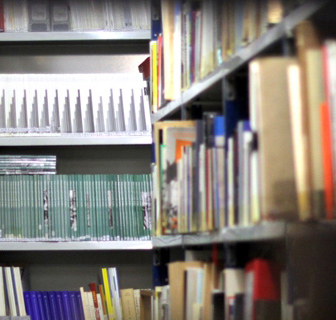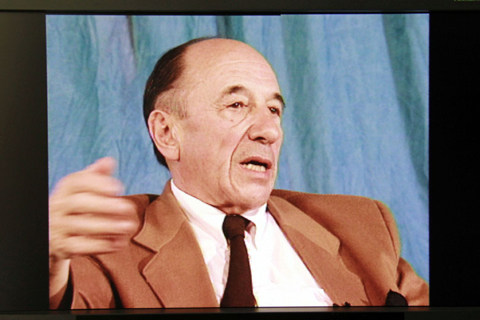Rules for the Prizes of the Auschwitz Foundation
Art. 1 - In homage to all the victims of Nazi concentration and extermination camps, the Auschwitz Foundation, a State-approved Foundation, has established the Prize of the Auschwitz Foundation (€6,250) and the Jacques Rozenberg Prize* of the Auschwitz Foundation (€3,125).
Art. 2 - The Prize of the Auschwitz Foundation and the Jacques Rozenberg Prize of the Auschwitz Foundation may be awarded in June of each year for two unpublished original works, made by researchers who aren’t in end of career nor famous, which constitute a major contribution to the study of:
- National Socialism and the Third Reich (history, politics, economy, society, culture and ideology);
- Nazi crimes and genocides and the systems and processes which gave rise to them;
- the consequences of these events for consciousness and collective memory in the present day;
- similar events in the past and since the end of World War II.
Art. 3 - The value of the Prize of the Auschwitz Foundation is €6,250 and that of the Jacques Rozenberg Prize of the Auschwitz Foundation is €3,125. These amounts may not be divided between more than one recipient, and will not be increased if they are not awarded for one or more years. If a prize-winning work is published, the publication must clearly state that it has been awarded one of the prizes of the Auschwitz Foundation.
Art. 4 - The Board of Management reserves the right, following a proposal by the jury, to award a subsidy to one or more deserving candidates whose entries do not qualify for a prize but are nevertheless clearly valuable, so that the candidate(s) may continue their researches.
Art. 5 – By 31 December of each year at the latest, each candidate must file with the Auschwitz Foundation (rue des Tanneurs, 65 – B-1000 Brussels), wich has also to be send us by email, dossier containing:
- Three copies of the document to be examined by the jury;
- A summary of the subject of the research in 500 characters (including spaces), intended for broadcast on our website, and explaining the purpose of the research;
- A detailed outline of the document;
- A physical description of the document (number of pages, format, illustrations, DVD or CD-ROM, etc.);
- A summary of the document in 6000 to 7000 characters (including spaces), destinated for publication on our website;
- A bibliography and details of other sources (archives, illustrations, interviews, etc.);
- The candidate’s detailed curriculum vitae.
Art. 6 - Entries will be examined by a jury established for this purpose and including members of the Board of Management of the Auschwitz Foundation, together with anyone else whose participation they consider would be useful. Each member of the jury will present a report on the entries which he or she is asked to examine. After reviewing all the reports, the jury will award the prizes, together with any subsidy awarded under Article 4 of these Rules. The jury’s decision is final.
Art. 7 - The Board of Management of the Auschwitz Foundation is competent for all matters not foreseen by these Rules.
(*) In memory of Jacques Rozenberg, survivor of Auschwitz and a founding member of the Auschwitz Foundation.
For further information, please contact the Auschwitz Foundation:
Rue des Tanneurs, 65 – B-1000 Brussels – Belgium
Tel.: +32 (0)2 512 79 98 – fax: +32 (0)2 512 58 84 – Contact by Email

The Library
The Auschwitz Foundation makes a multilingual library with over 13,000 books available to the general public. The books and periodicals relate to the study of the Second World War (particularly in Belgium, France and the Netherlands), Fascism, National Socialism and the Third Reich (history, movements, regimes, institutions, society, economy, ideologies, etc.) as well as to all dimensions of Fascist and Nazi criminality (political repression, racial persecutions, medical experiments, war crimes, genocidal politics, etc.). The genocides of the Jews and Roma perpetrated by the Nazis are widely represented.
We possess extensive documentation on extermination centres and concentration camps.
Many books also deal with the history of anti-fascism, anti-Nazism and the Resistance in Europe.
More theoretical and methodological themes are also covered: the relationship between history and memory, the use of testimonies and oral history, the validity of comparative approaches, the great historiographical debates and controversies on the interpretation of totalitarian, fascist, Nazi and Stalinist phenomena, etc.
In addition, the Auschwitz Foundation library offers readers educational books, numerous testimonies and significant novels about the Shoah.
The collections also include works on racism, anti-Semitism, xenophobia and their resurgence, and on Holocaust denial today.
Other mass crimes and genocides, from the Armenians to Rwanda to the former Yugoslavia, etc., are also found among the works in our collection.
A computerised catalogue of books and periodicals is available to readers and can be consulted on site.
By appointment, the scientific staff of Remembrance of Auschwitz are available to guide readers in their research.
The library is open to the public from Monday to Friday from 9.30 a.m. to 12.30 a.m. and from 1.30 p.m. to 4.30 p.m., only after making an appointment with the library manager, Mr Verschueren, by e-mail.
Registration is free and compulsory. Consultations are free of charge. Some of the documentation can be borrowed for a fortnight. A4 photocopies can be produced for €0.05.
Access to the library and its documentation is subject to general reading regulations.
The Archive Collections
Since its creation in 1980, the Auschwitz Foundation has undertaken to collect all types of archival documents relating to the Nazi concentration camp world and the situation of deportees and survivors. This collection of archives is motivated by the desire to preserve as many traces as possible, but it also aims to gather a large amount of documentation for scientific research or any type of educational process.
The archives are accessible from Monday to Friday from 9.30 a.m. to 12.30 a.m. and from 1.30 p.m. to 4.30 p.m., by appointment only with the archives manager, Ms Timperman by e-mail.
The Auschwitz Foundation has a number of archive collections, including:
- A photo library consisting, on the one hand, of photos relating to the activities of the Amicale d'Auschwitz and the Auschwitz Foundation (trips, seminars, etc.) and, on the other hand, of photographic prints relating to the Second World War (Belgium under occupation, the Third Reich, concentration camps and extermination centres, etc.); these are reproductions from the main museums or renowned study centres;
- the archives of the Amicale Belge des Ex-Prisonniers Politiques d’Auschwitz-Birkenau: current archives of the Amicale such as correspondence, activity programmes, minutes of meetings, organisation of events, etc.;
- the archives of the International Auschwitz Committee: publications, minutes, balance sheets, articles of association, correspondence with national committees, etc.;
- the Personal Papers of Victims of Nazi Crimes and Genocides collection: these include membership cards, identification cards, deportation cards, official acknowledgements, correspondence, certificates and declarations of incarceration, photographs, press cuttings, drawings, etc.; the latter collection is mainly made up of documents supplied by survivors following their audiovisual interviews.
As the Belgian branch of the Fortunoff Video Archive for Holocaust Testimonies of Yale University, the Auschwitz Foundation has been collecting testimonies of camp survivors in the form of audiovisual interviews since 1992. These interviews are life stories in which the witness tells his or her story before, during and after deportation. The recordings are accompanied by a biographical sheet containing factual information about the witness’ life. In addition, a number of these interviews are thematically indexed (with reference to the ‘time-code’ and sequenced to facilitate research. To date, the Foundation has collected 246 interviews representing almost 1,250 interview hours. The average length of the interviews is 5 hours 10 minutes.
http://fortunoff-testimonies.be/
Contact
Auschwitz Foundation – Remembrance of Auschwitz
Rue aux Laines 17 box 50 – B-1000 Brussels +32 (0)2 512 79 98
+32 (0)2 512 79 98 info@auschwitz.be
info@auschwitz.be
BCE/KBO Auschwitz Foundation: 0876787354
BCE/KBO Remembrance of Auschwitz: 0420667323
Office open from Monday to Friday 9:30am to 4:30pm.
Visit only by appointment.
![]()
![]()
![]()
![]()
![]()
Become a member
To become a member of Remembrance of Auschwitz ASBL, please contact us and transfer the sum of €50.00 to our account IBAN: BE55 3100 7805 1744 – BIC: BBRUBEBB with the communication: ‘Membership fee 2025’. The membership includes two issues of 2025 of our scientific journal.
DONATIONS
Donations of €40.00 or more (in one or more instalments) qualify for tax exemption for Belgian taxpayers.
In communication, please specify that it is a ‘Donation’ and mention your National Number which is required since 2024 to benefit from the tax exemption.
Subscribe
Error : Please select some lists in your AcyMailing module configuration for the field "Automatically subscribe to" and make sure the selected lists are enabled


